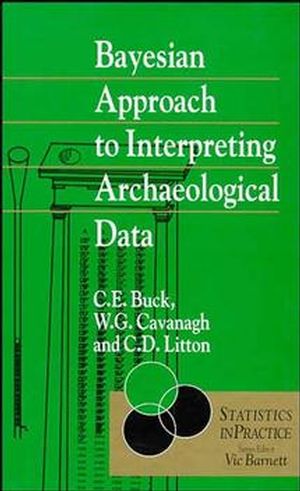Bayesian Approach to Intrepreting Archaeological DataISBN: 978-0-471-96197-0
Hardcover
404 pages
August 1996
 This is a Print-on-Demand title. It will be printed specifically to fill your order. Please allow an additional 10-15 days delivery time. The book is not returnable.
|
||||||
Statistics in Practice A new series of practical books outliningthe use of statistical techniques in a wide range of applicationareas:
- Human and Biological Sciences
- Earth and Environmental Sciences
- Industry, Commerce and Finance
The authors of this important text explore the processes throughwhich archaeologists analyse their data and how these can be mademore rigorous and effective by sound statistical modelling. Theyassume relatively little previous statistical or mathematicalknowledge. Introducing the idea underlying the Bayesian approach tothe statistical analysis of data and their subsequentinterpretation, the authors demonstrate the major advantage of thisapproach, i.e. that it allows the incorporation of relevant priorknowledge or beliefs into the analysis. By doing so it provides alogical and coherent way of updating beliefs from those held beforeobserving the data to those held after taking the data intoaccount. To illustrate the power and effectiveness of mathematicaland statistical modelling within the Bayesian framework, a varietyof real case studies are presented covering areas of commoninterest to archaeologists. These case studies cover applicationsin areas such as radiocarbon dating, spatial analysis, provenancestudies and other dating methods. Background to these case studiesis provided for those readers not so familiar with the subject.Thus, the book provides an examination of the theoretical andpractical consequences of Bayesian analysis for examining problemsin archaeology. Students of archaeology and related disciplines andprofessional archaeologists will find the book an informative andpractical introduction to the subject.



